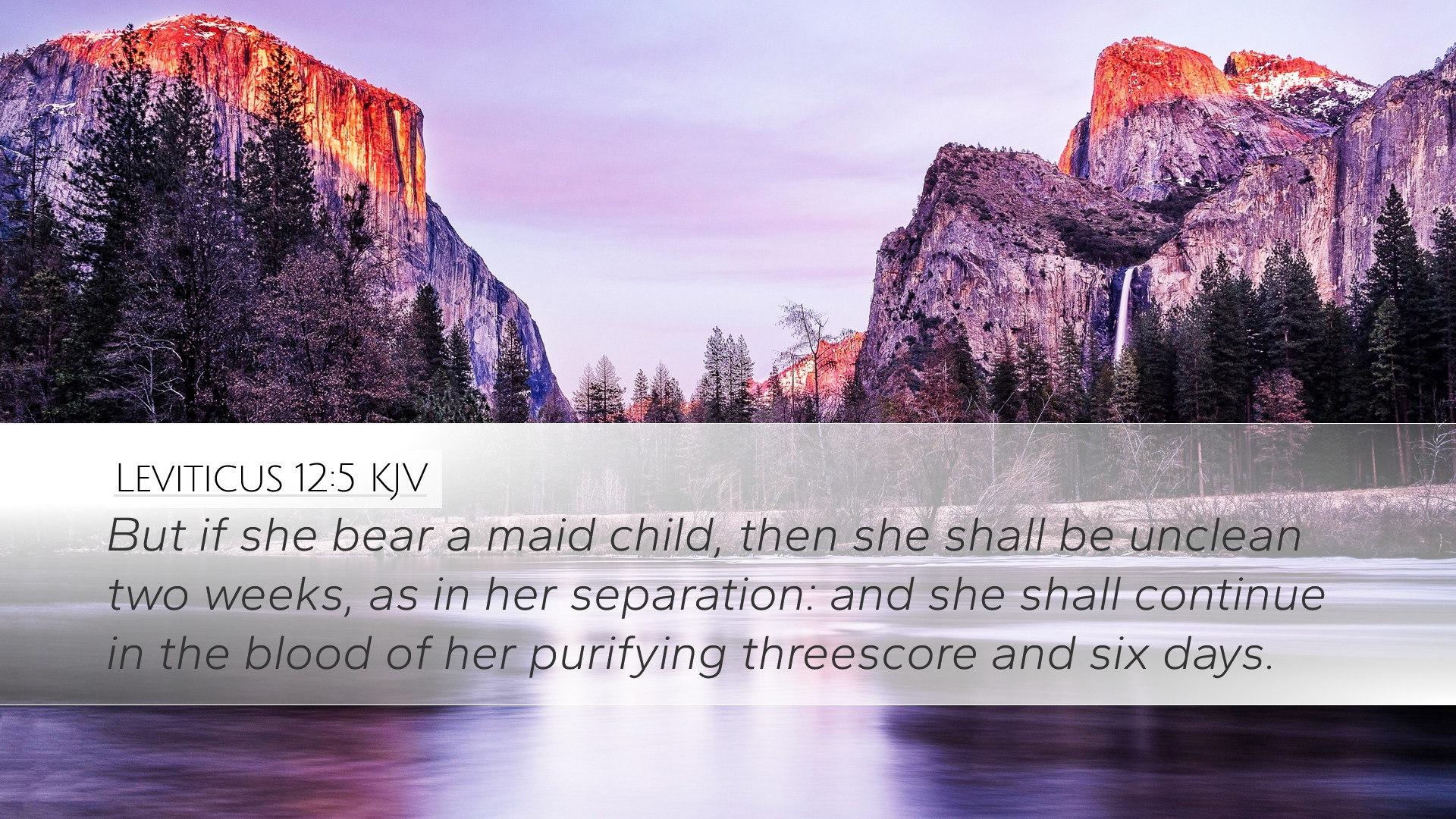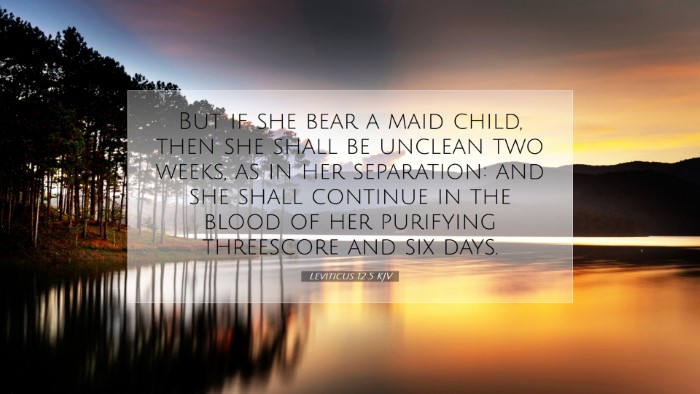Commentary on Leviticus 12:5
Verse Context: Leviticus 12:5 states, "But if she bears a female child, she shall be unclean two weeks, as in her menstrual impurity; and she shall continue in the blood of her purifying for sixty-six days." This verse resides within the framework of the laws pertaining to childbirth and ritual purity, indicating the significant emphasis placed on cleanliness and holiness in the Israelite community.
Overall Themes in Leviticus 12
The chapter discusses the period of purification for women after childbirth, highlighting the difference between male and female births. It reflects aspects of gender, purity, and the sanctity of life in ancient Israel.
Insights from Matthew Henry
Matthew Henry emphasizes the mercy of God in the law concerning childbirth. He notes that the prescribed period of uncleanness serves to acknowledge the physical burden of childbirth and the inherent complications associated with it. Henry writes: "The law of nature may be allowed to have its share in the direction of childbirth and the ensuing purification; yet God's law is here enacted to guide and oversee such significant life events."
He further comments on the distinction between male and female births, suggesting that it illustrates God's sovereignty over life and gender. In context, it does not imply inferiority of women but rather a recognition of the unique roles assigned within the Israelites' worship system, ultimately pointing to a greater theological truth regarding God’s creation and design.
Albert Barnes’ Perspective
Albert Barnes expands on the idea of ritual purity introduced in this chapter, stating that it reflects the seriousness with which the Israelites viewed their relationship with God. He suggests that the different durations of uncleanness for males and females signify not only the different experiences of parents but also a deeper symbolic meaning that represents the community's cultural and religious constructs.
Barnes notes: "The longer period following the birth of a daughter emphasizes the need for greater consecration and preparation, suggesting that the nurturing of spiritual and community identity is required more profoundly for females, reflecting societal norms that were understood in the ancient context."
Adam Clarke’s Exegesis
Adam Clarke provides a detailed exegesis of the text, commenting on the significance of the purification period and its implications for community and individual faith. He elaborates on the notion of purification, asserting that it was not merely about physical cleanliness but was deeply intertwined with spiritual health.
Clarke states: "The terms of this purification remind us of the inevitability of sin in birth; hence the offering of sacrifices is mandatory to achieve reconciliation. It serves not only the physical realm but aligns one's heart with God, showing the constant need for atonement."
Theological Implications
The instructions for purification represented in Leviticus 12:5 can be seen as a foreshadowing of the New Testament themes of purification through Christ. The distinction of periods related to the birth of a male versus female child can ignite discussions on gender roles in faith communities and the acknowledgment of both genders as integral to God's family.
The necessity for a blood sacrifice after childbirth underscores a foundational theological principle—the need for atonement, chaos brought on by sin, and humanity's dependence on God for cleansing and restoration.
Practical Application for Today
This passage has practical implications for pastors, scholars, and theologians in understanding the nature of holiness and community life. The verse can inspire discussions about how churches can support families during and after childbirth, addressing both physical and spiritual needs.
The ritual purity laws highlight the ongoing need for creating environments of grace and understanding. In a culture where children, both male and female, are sometimes seen through the lens of societal biases, the reminder of their equal worth and importance in God's plan must take precedence.
Conclusion
Leviticus 12:5, while situated in an ancient context, offers profound insights relevant to contemporary faith communities. The practices of purification reflect God’s care for His people and the complexity of life. As we navigate modern challenges, this call to honor life through purification should prompt reflection on our roles in nurturing holiness, understanding gender significance, and fostering an equitable community.


